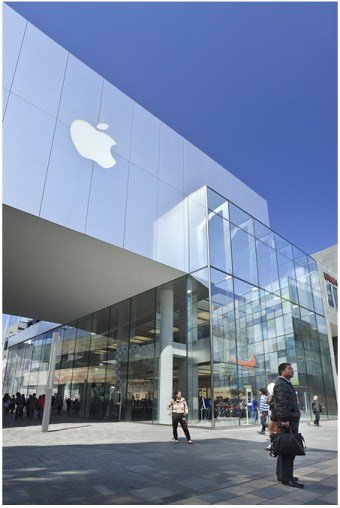At first mobile technologies used to serve for entertainment purposes: music listening, video watching, the Internet browsing, texting, photo shooting. But today, smartphones and tablets have turned out to be more than just calling devices with some additional functions for spending free time.
The level of mobile development has reached the point when smartphones and tablets can easily compete with personal computers in their functionality. That’s why there are really ambitious projects of mobile systems’ use in some very unusual spheres of life.
• Space Exploration
Mobile operating systems are not just mobile any more. NASA has a project of using Android system in new PhotoSat project. The agency is facing some financial problems and the new plan of the agency is to make nanosatellites on the base of new Google Nexus smartphone. The smartphone, which price is much less than of an ordinary onboard computer, is to function as a spacecraft computer. It has enough power and processing capacity to cope with the tasks it will be given. The first satellites built on mobile phone showed very good testing results.
• Business Integration
Business has changes its face to a mobile one. There are lots of companies that have the international presence with offices all around the world. And it is mobile development that makes the distance irrelevant for making money. And I’m not talking about some tools that help to make lots of working tasks easier, it is trite.
I am talking about the great mobile projects, for example Blue Mobile or Shareprice live developed for stock specialists and that make the working process much faster and easier, no matter where you are. Such applications perform even wider function than pcs can. And such mobile products make the business different; they change the rules of the game.
• Education
I remember when I was at school and at university teachers were strongly against using phones by pupils and students. But since then the situation has been changed completely. There appeared several directions in which the mobile technologies are being implemented into study process.
1) Class Assistance
In this case mobile technologies serve as helpers for teachers or students in searching for the information. There are lots of projects in different countries when schools or universities teachers use e-learning tool during the study process. And as the researches show such methods of learning are highly efficient, especially taking into account modern technologically-oriented pupils.
2) Teaching Hard-To-Reach Communities
As you know there are lots of region all over the world (for example the text2teach program in the Philippines and the BridgeIT program in Tanzania) where it is really hard to set up a really good study process. Especially in some regions of Africa and South America.
So, there are some international programs that help pupils from such countries to study via their tablets and the information stored there. It is a much cheaper way of helping.
3) Reinventing the Textbook
The use of tablets and smartphones has changed the look of ordinary textbook. Hypertext is a base of new study books. Besides, students can make the notes on various topics and the system itself will compile the chapters and topics for further search and study. So, the new way on knowledge presentation looks like the integrity with the clear linkage among the elements.
• Healthcare
Mobile technologies in medicine have several directions to be developed in:
1) To increase medication compliance, e.g. adherence to medical prescriptions or various medial calculations (for example of the data when the prescription runs out).
2) To improve post-treatment period. Patience will be able to race their conditions via mobile apps which should remind them about the prescription that have been made. These technologies will save lots of time and money both doctors and patients.
3) An access to health information. Information is the very first thing that a patient can get via their smart gadgets: contact info, the results of the tests, pieces of advice and so on and so forth.
4) Healthcare data aggregation. It is a more statistical direction, but without the right data and its analysis it is impossible to make right prognosis and to make the right improvements steps.
Of course, there are much more mobile projects in all other spheres of life. And it wasn’t the aim to reveal or to enumerate them all; it was to show that mobile development isn’t any more only mobile in the common sense.
 Kate Merzlova
Kate MerzlovaAbout the Guest Author:
This post is written by Kate Merzlova, a tech writer from Intellectsoft, a team of professional android developers. To find out more or to stay in touch, follows us on Twitter @Intellectsoft

.jpg)